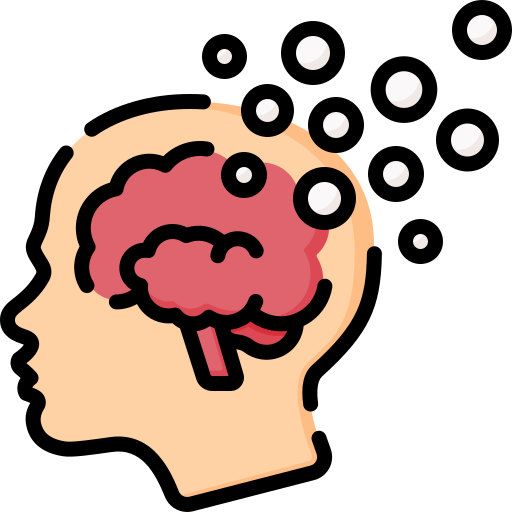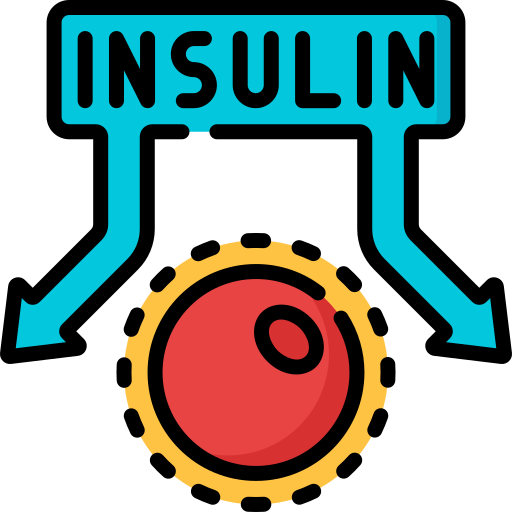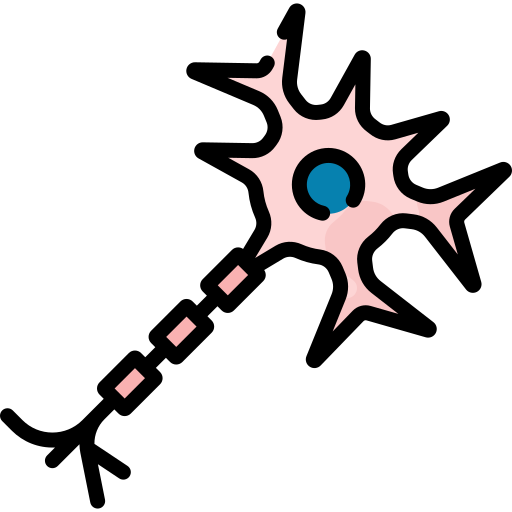
What is Alzheimer's Disease?
June 2025 is Alzheimer's & Brain Awareness Month. I'm sure you've all heard of Alzheimer's, but what actually is it? What causes it, how does it develop, and most importantly, how can we prevent or potentially even reverse it?

Alzheimer's is the most common form of dementia. It's caused by a buildup of amyloid plaques in the brain, causing the brain to shrink and cells to die.

Who Does Alzheimer's Impact?
About 6.9 million people aged 65 or older have Alzheimer's disease in the United States. Of these people, about 70% of them are age 75 or older. For context, there's about 57 million Americans who are 65 or older.

That means that just over 12% of people over age 65 have Alzheimer's alone, let alone other forms of dementia. Alzheimer's is estimated to make up 60-70% of all dementia cases, with about 55 million people impacted worldwide.

Symptoms
Alzheimer's is most characterized by memory loss. At the beginning of the disease, it will start as a difficulty remembering recent conversations or events. Essentially, it's advanced brain fog.

As the disease progresses, patients have more and more trouble with their memory, often times forgetting people or places. Some signs of Alzheimer's are the following:

Additionally, other symptoms include personality changes, depression, poor decision making, mood swings, lack of trust, and social withdrawal.

Is There A Cure?
Currently, there is no known cure for Alzheimer's disease. There have been various drugs in research, clinical trials, and even released to the public to attempt to treat or even cure Alzheimer's, but these have largely been unsuccessful.

The problem is that these drugs not only have side effects, but they're attempting to treat the symptom, not the root cause problem. It's still currently unknown if the buildup of plaque is a marker of Alzheimer's, or the direct cause of it.
.png)
So Can We Prevent It?
As mentioned previously, Alzheimer's impacts nearly 7 million Americans currently. By 2050, this number is projected to climb to 13 million; nearly double. Among people 65 and older, Alzheimer's is the 5th leading cause of death. It currently costs out healthcare system $360 billion dollars a year, and is projected to reach $1 trillion per year byo 2050 based on current trends.

Fortunately, recent research suggests that Alzheimer's is a largely preventable disease. Despite what you may think, Alzheimer's simply does not just "run in the family". Rates of the disease have skyrocketed in recent history, largely in part due to our ultra processed diet, lack of exercise, and poor quality sleep. Our genetics haven't changed, but our lifestyle has.

Warning Signs
Alzheimer's is not a disease of old age. Rather, it's a disease of middle age that show symptoms in old age. Alzheimer's and dementia are far from normal parts of aging.

By the time you're able to diagnose Alzheimer's, it's far too late. So what are the signs that we can look for 20+ years in advance to prevent this terrible disease from occurring?

Alzheimer's is starting to be known as "Type-3 Diabetes". Essentially, it's diabetes of the brain, where the main causes for diabetes are also the main causes for Alzheimer's disease.

Insulin Resistance
Mainly, insulin resistance, the driver for Type-2 Diabetes and a whole host of other chronic diseases, is believed to also be one of the main drivers of Alzheimer's and other forms of dementia.

Over 80 years ago, it was discovered that insulin resistance impacts Central Nervous System (CNS) function. As your brain becomes more resistant to insulin, it becomes less reactive to it, causing a drop in the amount of insulin crossing the Blood Brain Barriera (BBB). This causes "age-related" cognitive decline like Mild Cognitive Impairment (MCI), dementia, and Alzheimer's disease.

The idea that Alzheimer's is caused by the buildup of amyloid beta plaques is being challenged, as 1/3 of Alzheimer's patients lack this buildup of plaque long thought to be the driver of the disease. On the other hand, the majority of Alzheimer's patients exhibit insulin resistance and poor metabolic health to some degree, measures that can be track 10 to 20 years prior to the development of the disease.

Risk Factors and Comorbidities

How to Prevent Alzheimer's (And Other Chronic Diseases)?

A Healthy Diet
Of all the measures listed above, regularly consuming a healthy diet likely has the biggest impact on preventing Alzheimer's, dementia, and other chronic diseases. Prioritizing healthy fats like nuts, seeds, avocados, salmon, and extra virgin olive oil are shown to be fantastic for preserving brain health.

On the other hand, refined sugars and starches that are high on the Glycemic Index (GI) spike your glucose and stimulate insulin secretion. These foods are hyper-palatable, causing us to eat more and more of them without feeling full or getting any nutrients. Over time, this poor diet will lead to metabolic syndrome and insulin resistance.

It's best to limit your intake of added sugars and refined grains, while prioritizing meals high in protein and fiber. This doesn't mean consume a low carb diet, but you should aim to consume legumes, potatoes, fruits, and starchy vegetables over sugar, flour, white rice, pasta, and bread.

At meal time, it's best to consume protein, fiber, and healthy fats first, while consuming some sort of whole food starch last to mitigate blood sugar spikes and insulin secretion. Doing so will provide your body with a wide variety of vitamins, minerals, and phytochemicals, while also keeping you satisfied, healthy, and happy in the long term.

Quote: "A healthy man wants a thousand things, a sick man only wants one" -Confucius

Sources
This post may contain affiliate links
June 2025 is Alzheimer's & Brain Awareness Month. I'm sure you've all heard of Alzheimer's, but what actually is it? What causes it, how does it develop, and most importantly, how can we prevent or potentially even reverse it?

Alzheimer's is the most common form of dementia. It's caused by a buildup of amyloid plaques in the brain, causing the brain to shrink and cells to die.

Who Does Alzheimer's Impact?
About 6.9 million people aged 65 or older have Alzheimer's disease in the United States. Of these people, about 70% of them are age 75 or older. For context, there's about 57 million Americans who are 65 or older.

That means that just over 12% of people over age 65 have Alzheimer's alone, let alone other forms of dementia. Alzheimer's is estimated to make up 60-70% of all dementia cases, with about 55 million people impacted worldwide.

Symptoms
Alzheimer's is most characterized by memory loss. At the beginning of the disease, it will start as a difficulty remembering recent conversations or events. Essentially, it's advanced brain fog.

As the disease progresses, patients have more and more trouble with their memory, often times forgetting people or places. Some signs of Alzheimer's are the following:
- Forgetting events, appointments, or conversations
- Forgetting the names of everyday objects or family members
- Getting lost in places they used to know well
- Having trouble finding words
- Misplacing items
- Repeating statements over and over

Additionally, other symptoms include personality changes, depression, poor decision making, mood swings, lack of trust, and social withdrawal.

Is There A Cure?
Currently, there is no known cure for Alzheimer's disease. There have been various drugs in research, clinical trials, and even released to the public to attempt to treat or even cure Alzheimer's, but these have largely been unsuccessful.

The problem is that these drugs not only have side effects, but they're attempting to treat the symptom, not the root cause problem. It's still currently unknown if the buildup of plaque is a marker of Alzheimer's, or the direct cause of it.
.png)
So Can We Prevent It?
As mentioned previously, Alzheimer's impacts nearly 7 million Americans currently. By 2050, this number is projected to climb to 13 million; nearly double. Among people 65 and older, Alzheimer's is the 5th leading cause of death. It currently costs out healthcare system $360 billion dollars a year, and is projected to reach $1 trillion per year byo 2050 based on current trends.

Fortunately, recent research suggests that Alzheimer's is a largely preventable disease. Despite what you may think, Alzheimer's simply does not just "run in the family". Rates of the disease have skyrocketed in recent history, largely in part due to our ultra processed diet, lack of exercise, and poor quality sleep. Our genetics haven't changed, but our lifestyle has.

Warning Signs
Alzheimer's is not a disease of old age. Rather, it's a disease of middle age that show symptoms in old age. Alzheimer's and dementia are far from normal parts of aging.

By the time you're able to diagnose Alzheimer's, it's far too late. So what are the signs that we can look for 20+ years in advance to prevent this terrible disease from occurring?

Alzheimer's is starting to be known as "Type-3 Diabetes". Essentially, it's diabetes of the brain, where the main causes for diabetes are also the main causes for Alzheimer's disease.

Insulin Resistance
Mainly, insulin resistance, the driver for Type-2 Diabetes and a whole host of other chronic diseases, is believed to also be one of the main drivers of Alzheimer's and other forms of dementia.

Over 80 years ago, it was discovered that insulin resistance impacts Central Nervous System (CNS) function. As your brain becomes more resistant to insulin, it becomes less reactive to it, causing a drop in the amount of insulin crossing the Blood Brain Barriera (BBB). This causes "age-related" cognitive decline like Mild Cognitive Impairment (MCI), dementia, and Alzheimer's disease.

The idea that Alzheimer's is caused by the buildup of amyloid beta plaques is being challenged, as 1/3 of Alzheimer's patients lack this buildup of plaque long thought to be the driver of the disease. On the other hand, the majority of Alzheimer's patients exhibit insulin resistance and poor metabolic health to some degree, measures that can be track 10 to 20 years prior to the development of the disease.

Risk Factors and Comorbidities
- Alcohol use
- Arthritis
- Asthma
- Brain fog
- Depression
- Elevated fasting glucose, insulin, and A1C
- Heart Disease
- High LDL and low HDL
- High triglycerides
- Hypertension (high blood pressure)
- Insulin resistance
- Lack of Omega-3 fatty acids
- Lack of physical activity
- Metabolic syndrome
- Overweight or obesity
- PCOS
- Poor diet high in refined carbs

How to Prevent Alzheimer's (And Other Chronic Diseases)?
- Avoid all sugar sweetened beverages (soda, iced tea, sports drinks, juice, etc.)
- Consume plenty of protein, fiber, and healthy fats
- Get regular exercise
- Greatly limit intake of ultra processed food
- Maintain a healthy weight
- Monitor your blood sugar and cholesterol
- Prioritize proper sleep
- Quit smoking
- Reduce intake of highly refined sugars, starches, and oils
- Regularly get bloodwork, particularly fasting insulin

A Healthy Diet
Of all the measures listed above, regularly consuming a healthy diet likely has the biggest impact on preventing Alzheimer's, dementia, and other chronic diseases. Prioritizing healthy fats like nuts, seeds, avocados, salmon, and extra virgin olive oil are shown to be fantastic for preserving brain health.

On the other hand, refined sugars and starches that are high on the Glycemic Index (GI) spike your glucose and stimulate insulin secretion. These foods are hyper-palatable, causing us to eat more and more of them without feeling full or getting any nutrients. Over time, this poor diet will lead to metabolic syndrome and insulin resistance.

It's best to limit your intake of added sugars and refined grains, while prioritizing meals high in protein and fiber. This doesn't mean consume a low carb diet, but you should aim to consume legumes, potatoes, fruits, and starchy vegetables over sugar, flour, white rice, pasta, and bread.

At meal time, it's best to consume protein, fiber, and healthy fats first, while consuming some sort of whole food starch last to mitigate blood sugar spikes and insulin secretion. Doing so will provide your body with a wide variety of vitamins, minerals, and phytochemicals, while also keeping you satisfied, healthy, and happy in the long term.

Quote: "A healthy man wants a thousand things, a sick man only wants one" -Confucius

Sources
- FlatIcon
- Mayo Clinic: Alzheimer's Disease
- Alzheimer's Association and Figures
- Healthline: Type 3 Diabetes and Alzheimer’s Disease: What You Need to Know
- Canada Public Health: Chronic Disease Risk Factors
- PubMed Central: How Can Insulin Resistance Cause Alzheimer’s Disease?
- WellBe: Max Lugavere on Foods that Prevent Alzheimer’s & Other Ways to Prevent Dementia